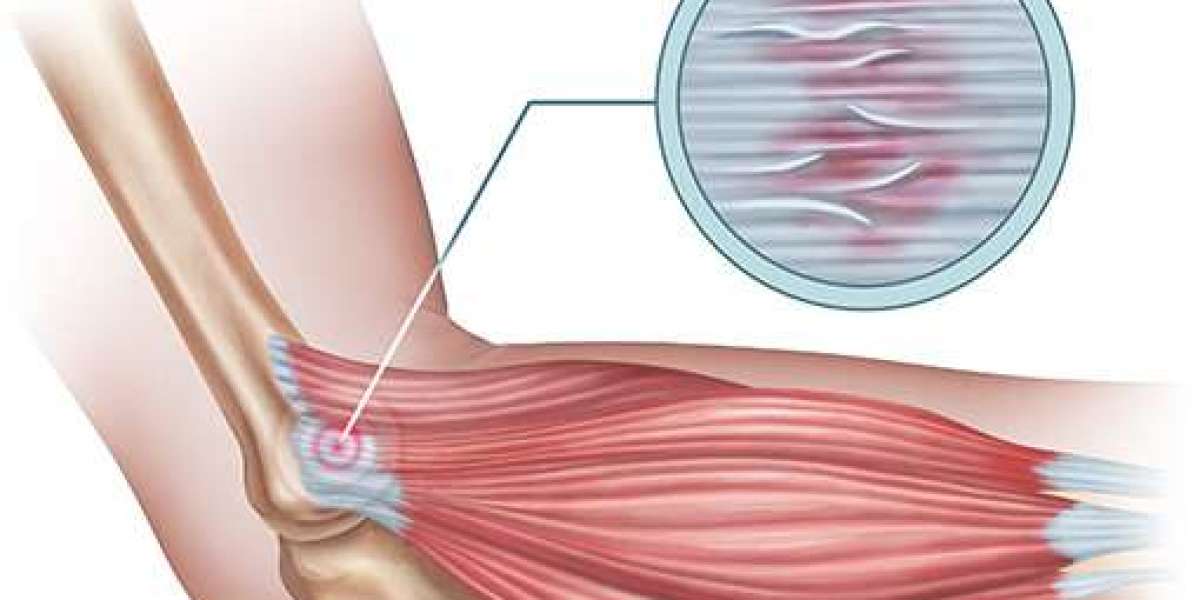Whether you're an athlete suffering from tennis elbow, a laborer dealing with joint stress, or simply someone experiencing chronic elbow discomfort, finding real, lasting relief is essential.
Stem cell therapy offers a promising alternative to traditional treatments, especially for those who want to avoid surgery and prolonged use of medications. This cutting-edge, regenerative treatment taps into your body’s natural healing ability to reduce pain, restore mobility, and promote long-term joint health.
What Causes Elbow Pain?
Your elbow is a complex joint involving bones, cartilage, ligaments, and tendons. Pain can result from a variety of conditions:
Tennis Elbow (Lateral Epicondylitis)
Golfer’s Elbow (Medial Epicondylitis)
Arthritis or osteoarthritis
Tendon or ligament injuries
Repetitive strain or overuse injuries
Many treatments focus on managing symptoms. Stem cell therapy aims to treat the root cause.
What is Stem Cell Therapy?
Stem cell therapy is a form of regenerative medicine. It uses your body’s own stem cells—usually harvested from your bone marrow or fat tissue—to promote healing in damaged tissues.
When injected into the elbow joint or surrounding areas, these cells can:
Reduce inflammation
Promote tissue repair
Help regenerate damaged cartilage or tendon tissue
Relieve pain without masking it
This is a minimally invasive, non-surgical approach designed to help your body heal itself.
How It Works for Elbow Conditions
Here’s what typically happens during a stem cell treatment for elbow pain:
Consultation & Diagnosis – Your doctor reviews your medical history and may use imaging to assess the elbow.
Stem Cell Harvesting – Cells are collected from your bone marrow (usually from the hip) or fat tissue.
Processing – The stem cells are concentrated in a lab to ensure a high-quality sample.
Injection – The processed stem cells are injected into the damaged area of the elbow using ultrasound or fluoroscopic guidance for accuracy.
Recovery & Monitoring – Most patients return to normal activity within days, with healing continuing over weeks or months.
Stem Cell vs. Traditional Treatments
| Treatment | Invasiveness | Downtime | Long-Term Healing |
|---|---|---|---|
| Cortisone Injections | Low | Minimal | Temporary relief |
| Physical Therapy | Low | Weeks | May improve motion |
| Surgery | High | Weeks-Months | Effective but risky |
| Stem Cell Therapy | Low | Minimal | Targets healing, not just pain |
Stem cell therapy offers a middle ground—more proactive than physical therapy, less invasive than surgery.
Who’s a Good Candidate?
Stem cell therapy may be a good option if you:
Have chronic elbow pain that hasn’t improved with rest, therapy, or medication
Want to avoid surgery or extended recovery time
Suffer from tendonitis, arthritis, or cartilage damage
Lead an active lifestyle and want to return to it without limitations
It’s especially popular with athletes and individuals seeking natural, non-pharmaceutical relief.
What to Expect After Treatment
While results vary from person to person, many patients report:
Noticeable pain reduction within weeks
Improved joint function over time
Continued improvement for up to 6–12 months post-treatment
Stem cell therapy is often part of a broader recovery plan that may include physical therapy, rest, and follow-up appointments.
Finding a Stem Cell Doctor Near You
If you're considering stem cell therapy for elbow pain, it’s essential to work with an experienced regenerative medicine specialist. Look for a clinic that:
Uses FDA-compliant techniques
Performs image-guided injections
Offers comprehensive diagnostic evaluations
Has experience treating joint and tendon issues
Chronic elbow pain doesn’t have to be a lifelong struggle. With stem cell therapy, there’s a chance to heal naturally, avoid surgery, and regain your freedom of movement. Whether you're an athlete, artist, or weekend warrior, this innovative treatment could help you get back to doing what you love—pain-free.


